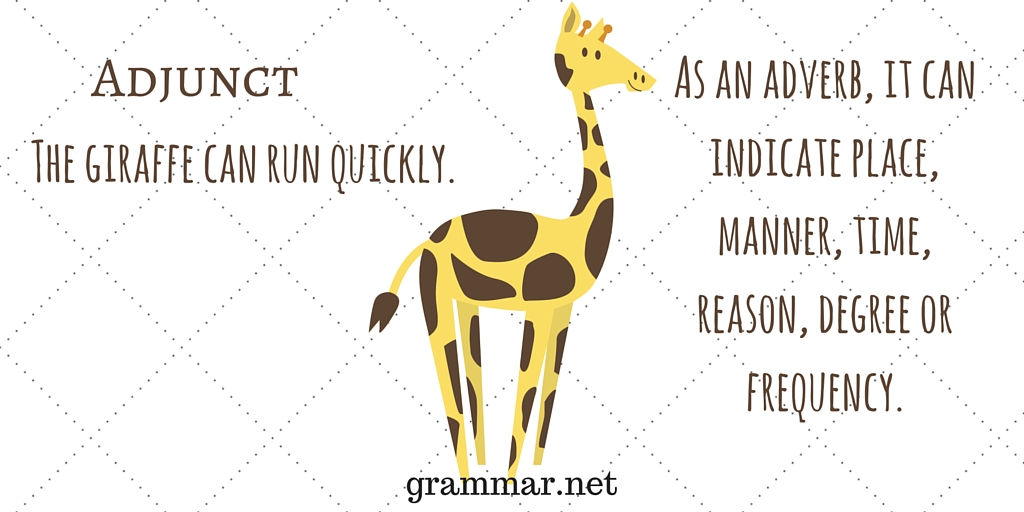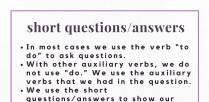An adjunct is a type of adverbial, which is an adverb, clause (adverbial clause) or phrase (adverbial phrase) that can modify an adjective, verb or an entire sentence. Adverbials come in four types: adverbial complements, conjuncts, disjuncts, and adjuncts.
Adjuncts offer information on the central idea and meaning of a sentence but will not disturb the grammar or construction if left out. The sentence will still be a complete thought and will not feel awkward. It is usually used to add information to a verb. When used as an adverb, it can indicate place, manner, time, reason, degree or frequency.
“The big dog could run quickly.”
“If we finish packing, we will leave by tomorrow.”
“The cat tore from the room like a hurricane when Sheila turned the vacuum on.”
Other Types of Adverbial
Adverbial complements are a type of adverbial that will turn the sentence into a fragment and make it meaningless when it is removed.
“Wendy put the horse into his stall.”
“Wendy put the horse–” is an incomplete sentence.
Conjuncts are used to show relationship or join two sentences or independent clauses. They are also known as transitional or cohesive conjunctions.
“The sitter came early, so Jenni was, therefore, able to finish her housework.”
Disjuncts comment on the meaning of the rest of the sentence, such as content or manner, and can be removed without damaging the sentence.
“Regrettably, the package was lost in the mail.”
“Perhaps we could help you with that.”



![How to master colon and semicolon? [infographic]](https://www.grammar.net/wp-content/uploads/2015/07/How-to-master-colons-and-semicolons-web-2-308x95.jpg)




